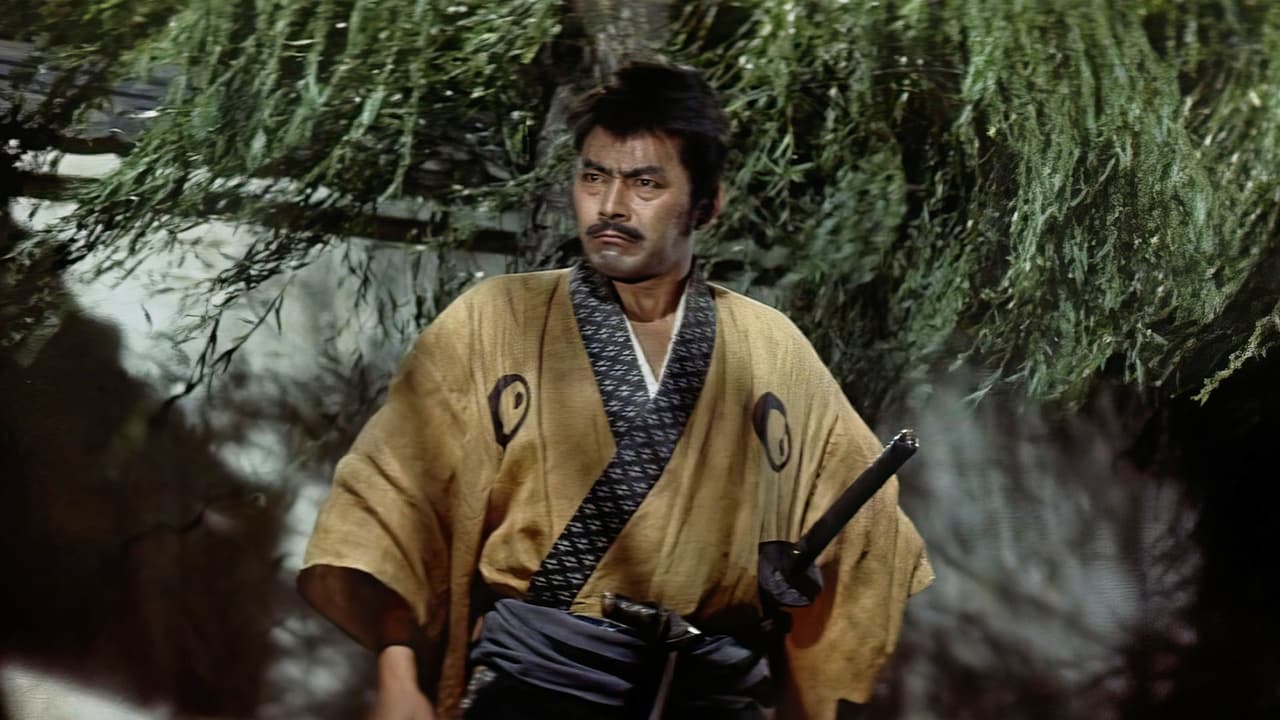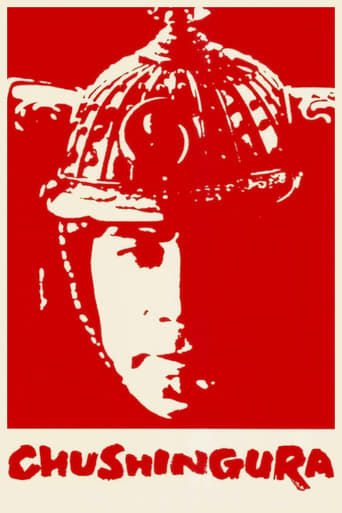

Bad Acting and worse Bad Screenplay
... View MoreThere's a more than satisfactory amount of boom-boom in the movie's trim running time.
... View MoreI enjoyed watching this film and would recommend other to give it a try , (as I am) but this movie, although enjoyable to watch due to the better than average acting fails to add anything new to its storyline that is all too familiar to these types of movies.
... View MoreThere's no way I can possibly love it entirely but I just think its ridiculously bad, but enjoyable at the same time.
... View MoreThis story of the 47 loyal ronin (ronin is a Japanese word for a master-less samurai) is based on actual events that took place in 1701 and 1702--although some of the exact details are uncertain (including the actual number) . What is certain is that a feudal lord attempted to murder on of the Shogun's trusted men in one of the royal castles. As a result, the attempted murderer was ordered to commit ritual suicide and his retainers (now ronin) vowed revenge on the man almost killed. What the exact insult was is lost to history, but the tale is considered a classic and most Japanese people are very familiar with it.It would have a very hard time giving any version of this story a 10 because there are so very many that you can't give them anything for originality. According to IMDb, on Japanese TV alone, something like a dozen different versions were made just during one decade! And, as far as movies go, there are also quite a few. I've seen the classic 1941 version and found it to be very, very different from CHUSHINGURA because it was much more nationalistic and seemed, at times, like wartime propaganda (albeit, very good propaganda) AND because the film was much more fast-moving--skipping much of the setup that you find in this remake. In other words, in 1941, the insult and the attempted murder take place very early into the film and here in 1962, it doesn't occur until about an hour into the film. In fact, while an amazingly well made film, CHUSHINGURA is perhaps too deliberately paced and could have used an edit. While I like very long films, this one just wasn't paced well enough to merit its 3-1/2 hour running time. At 2-1/2 or 3 hours, it would have played better.As for the acting, sets and everything else about the film, it was all first-rate. The film was obviously a prestige film and as a consequence was filmed in lovely full-color. In fact, other than the pacing and ubiquity of the plot, it's a very well made and interesting film--probably even more so in Japan, where it's a beloved tale illustrating loyalty and honor.Finally, it should be noted that although Toshirô Mifune is shown on the DVD art and all the pictures here on IMDb, his role is very small and this is definitely a film with a large ensemble cast--not a Mifune film per se. His fans might be disappointed by this and you might want to consider this before you watch.
... View MoreIt is unfortunate, to say the least, that the original 1962 incredibly loving critiques are no longer in print regarding the true nature of the origin, history and creation of this film. When I first saw it in 1963 (at the Castro, I believe, in S.F.) there was a lengthy story "blown up" on display board in the entryway. This film was a one-of-a- kind deliberate and heartfelt "gift to the world", created by a group of Japanese artists using film as their medium. This particular film was a reflection of what happened in the hearts of sentient Japanese artists AFTER Japan's defeat in WWII. Out of profound dignity they crafted this film to tell of the truest, deepest beauty of their culture, revealing it through the vulnerable opening of their hearts and sharing the story of the true Japan. In a manner similar to "The Passion" of our time, there was always a great historical purpose to this gift -- not merely a commercial undertaking. Thus, I believe the HISTORY of this film holds an even more noble place than the film itself, which happens to be a masterpiece painted with the love of its creators.
... View MoreThe Japanese Classic epic. (I've heard it referred to as the Japanese "Gone with the Wind" in terms of impact.) Not for all tastes, but easily one of the greatest movies of all time. Played the American art houses briefly when it came out, in the early 60's, and 35 years later I bought a DVD player just so I could see this movie again. It held up well to my memory of originally coming out of it totally stunned, and is actually better than my memory of it. At the time I was impressed with the historical spectacle and fight scenes , but they are minor compared to the character development and total visuals. The director, Hiroshi Inagaki has had few releases in the US, but if you like Kurosawa, rent or buy this DVD. The transfer is excellent, the color amazing for the period. Long and slow by today's formulas, but if you give it the full 207 minutes, you will find yourself coming back multiple times.A 1962 "Crouching Tiger..."
... View MoreGorgeous color, magnificent scenery, superb acting, a classic story from the history of Japan, what more could a movie have that you would want? Even though you have to read the subtitles, the grandeur of the movie captivates you so that you forget that you are reading - you begin to hear the actors in English. I have seen this movie (the four hour version) six times and would go to see it again whenever I know that it is playing. It is hard to say that one of the actors is better than another - they all do their part to make this a movie worth seeing time and time again. The only other movie I would put in the same class is 2001, but of course I am a science fiction fan.
... View More